We are fortunate in Nashville. While winters can bring some nasty weather, our cold months are relatively mild compared to our neighbors to the north. That said, we still get ice and snow and have our fair share of slip and fall accidents as a result.
So how do Nashville homeowners wage the deicing war? Unfortunately, many attack the ice with rock salt (sodium chloride). Rock salt has one redeeming characteristic: it is dirt cheap. But if you take a hard look at what rock salt can do, it quickly becomes obvious that repeated use can cause serious, expensive damage.
Rock salt is an abrasive and a corrosive and will wreak havoc on concrete walkways and driveways. At the Parke Company, Nashville’s premiere landscaping service, we are concerned about how sodium chloride affects our clients’ landscape. Not surprisingly, rock salt is not plant friendly.
What to Know About Rock Salt
How Rock Salt Damages Your Landscape
There are a number of ways that sodium chloride can damage plants, trees, and grass. Salt spray either from the road or from traffic on your driveway can burn stems and buds of deciduous woody plants, plus stems, buds, leaves and needles of evergreen plants.
Run off is another sneakier way that sodium chloride does damage. When diluted with water, sodium chloride splits into separate ions. These ions can prevent absorption of other nutrients like potassium and phosphorus. Chloride can make its way to leaves and interfere with chlorophyll. When this process is disturbed in deciduous shrubs and trees, the plant can die.
None of the signs of sodium chloride in the soil will become evident until the spring when the plants and trees begin to renew. If the concentration is high enough, a homeowner could be looking at replacing shrubs or even a tree removal.
Safe Alternatives to Rock Salt
There are a number of chemical and non-chemical substitutes for rock salt that are safe (or safer) for your plants. They all have different characteristics but what they all have in common is they cost more than rock salt.
Here’s a quick rundown:
- Potassium chloride: This is perhaps the friendliest deicer for plants. It is only effective down to 25 degrees but that covers most of Nashville’s cold weather.
- Magnesium chloride: Works down to 1 degree and is plant friendly. It may leave a residue on driveways and sidewalks that will need to be washed off once the risk of icing is over.
- Calcium chloride: Kind of overkill. This works down to -23 degrees. If Nashville gets that kind of weather, your plants are in serious trouble any way you look at it. Calcium chloride works fast, which means it melts the ice and creates water, which is subject to refreezing.
- Heated Driveways: The ultimate solution. Without question the most effective way to prevent ice from forming or melting it if it has. Exceptionally convenient and also exceptionally expensive. Installation involves digging up your existing driveway.
Managing ice is a serious concern. There is the obvious risk associated with ice but you have to consider the consequences of the way you fight it. As a leading tree service, we have seen trees, bushes, and perennials that have been sufficiently damaged by deicers so that they needed to be removed. Nothing is sadder than seeing a tree cut down or removing a tree simply because the wrong kind of deicer was used.
